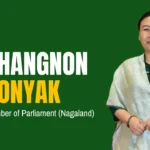As the Jharkhand Assembly election draws near, political parties are gearing up for a fierce contest to secure the 81 seats up for grabs. The incumbent Chief Minister, Champai Soren of the Jharkhand Mukti Morcha (JMM), faces the challenge of retaining power against formidable opponents, with the stakes higher than ever. Simultaneously, the Bharatiya Janata Party (BJP) is strategically preparing to wrest control from the ruling coalition, making this election a high-stakes battle for both major parties.
Background and Context
The Jharkhand Legislative Assembly’s tenure is set to end on January 5, 2025. In the previous assembly elections held in November–December 2019, a coalition of the JMM, Indian National Congress (INC), and Rashtriya Janata Dal (RJD) formed the state government, with Hemant Soren assuming the role of Chief Minister. As the election cycle repeats, the strategies employed by the JMM to secure victory are under intense scrutiny. At the same time, the BJP is not leaving any stone unturned to regain its foothold in the state.
JMM’s Key Strategies
Tribal Outreach
Jharkhand has a significant tribal population, and the JMM aims to consolidate its support among these communities. The party’s focus on tribal welfare, land rights, and cultural preservation has been a cornerstone of its appeal. JMM leader Kalpana Soren, the wife of former Chief Minister Hemant Soren, was recently sworn in as an MLA from the Gandey assembly constituency, reinforcing the party’s strong tribal connection. This move is seen as a strategic effort to solidify the party’s base among tribal voters before Jharkhand Assembly Election.
Alliance Building
The JMM is part of the Mahagathbandhan (MGB) alliance, which includes the INC and RJD. This alliance is pivotal in consolidating anti-BJP votes.
The MGB’s success in the 2019 Lok Sabha elections, where it won five out of 14 seats, provides a solid foundation for the upcoming assembly polls. This alliance aims to present a united front to challenge the BJP’s influence in the state.
Focused Campaigns for Jharkhand Assembly Election
The JMM is emphasizing local issues such as unemployment, healthcare, and education. By addressing these grassroots concerns, the party aims to connect deeply with voters. Party workers are conducting door-to-door campaigns, organizing rallies, and leveraging social media to reach a broader audience. This approach ensures that the JMM’s message resonates with voters across different demographics.
In a significant move aimed at empowering women, Jharkhand Chief Minister Champai Soren has announced a cash incentive scheme for women across the state. The scheme christened the “Mukhamantri Bahan Beti Swabalamban Yojna” (MBBSY), will provide direct cash transfers to women between the ages of 25 and 50 years. Starting from July to August this year, approximately four million women in Jharkhand will receive a monthly cash transfer of ₹1,000.
The scheme aims to alleviate financial constraints faced by women, allowing them to meet their needs and contribute to their families’ well-being. Officials are working diligently to collect applications from eligible women starting July 1. By August, the cash benefits will be directly transferred to their bank accounts.
Given the age group ceiling of 25-50 years, the scheme is expected to cover around four million women. However, this ambitious endeavor comes with a price tag—the state government will allocate an additional ₹4,000-₹5,000 crore annually to fund the program.
Analysts view this move as a strategic step to woo women voters ahead of the upcoming Jharkhand Assembly Election, scheduled in four months.
Leadership Appeal
Chief Minister Champai Soren’s leadership is a crucial element of the JMM’s strategy. His accessibility, down-to-earth demeanor, and commitment to tribal welfare have garnered widespread support.
The JMM is emphasizing its track record in governance, showcasing development projects, and promising further progress if re-elected. This narrative aims to build trust and credibility among the electorate.
Strategic Seat Distribution
The JMM is meticulously allocating candidates across constituencies to maximize its chances of winning. The party is particularly focused on the 28 tribal reserved assembly seats, of which 24 fall under the five Lok Sabha seats it won in 2019. This targeted approach is critical for securing a substantial number of seats.
BJP’s Counter-Strategies
Union Minister Shivraj Singh Chouhan and Assam Chief Minister Himanta Biswa Sarma have arrived in Ranchi to prepare strategies for the upcoming Jharkhand assembly election. As the BJP’s election in-charge and co-in-charge for Jharkhand, respectively, they aim to secure victory in the state polls later this year.
Reviewing Lok Sabha Performance
Chouhan and Sarma will assess the BJP’s performance in the recently concluded Lok Sabha elections in Jharkhand. Insights from these elections will guide their approach for the assembly polls.
Party Meetings and Brainstorming Sessions
#WATCH | Ranchi: Union Minister and Jharkhand Assembly election in-charge Shivraj Singh Chouhan and Assam CM and Jharkhand Assembly election co-incharge Himanta Biswa Sarma hold a meeting over upcoming Assembly elections in the state. pic.twitter.com/tu45xIzvIj
— ANI (@ANI) June 23, 2024
In their first visit as election in-charge and co-in-charge, Chouhan and Sarma will hold more meetings with party leaders, core committee members, district presidents, and workers. A series of brainstorming sessions are scheduled to prepare a comprehensive roadmap for the upcoming Jharkhand Assembly Election.
While specific details of their strategy remain undisclosed, the presence of Chouhan and Sarma underscores the BJP’s determination to secure victory in Jharkhand. The battle for Jharkhand’s assembly seats is set to be intense, with both major political camps employing robust strategies to sway the electorate.
Conclusion
As the Jharkhand Assembly Election approaches, both the JMM and BJP face significant opportunities and challenges. The JMM’s ability to maintain its tribal base, leverage alliances, and effectively communicate its vision will be pivotal in determining its success. On the other hand, the BJP’s strategic planning and focus on performance assessment and grassroots engagement are key components of its bid to regain control. Jharkhand Assembly Election promises to be a landmark event in the state’s political landscape, with the JMM and BJP battling it out for supremacy.










